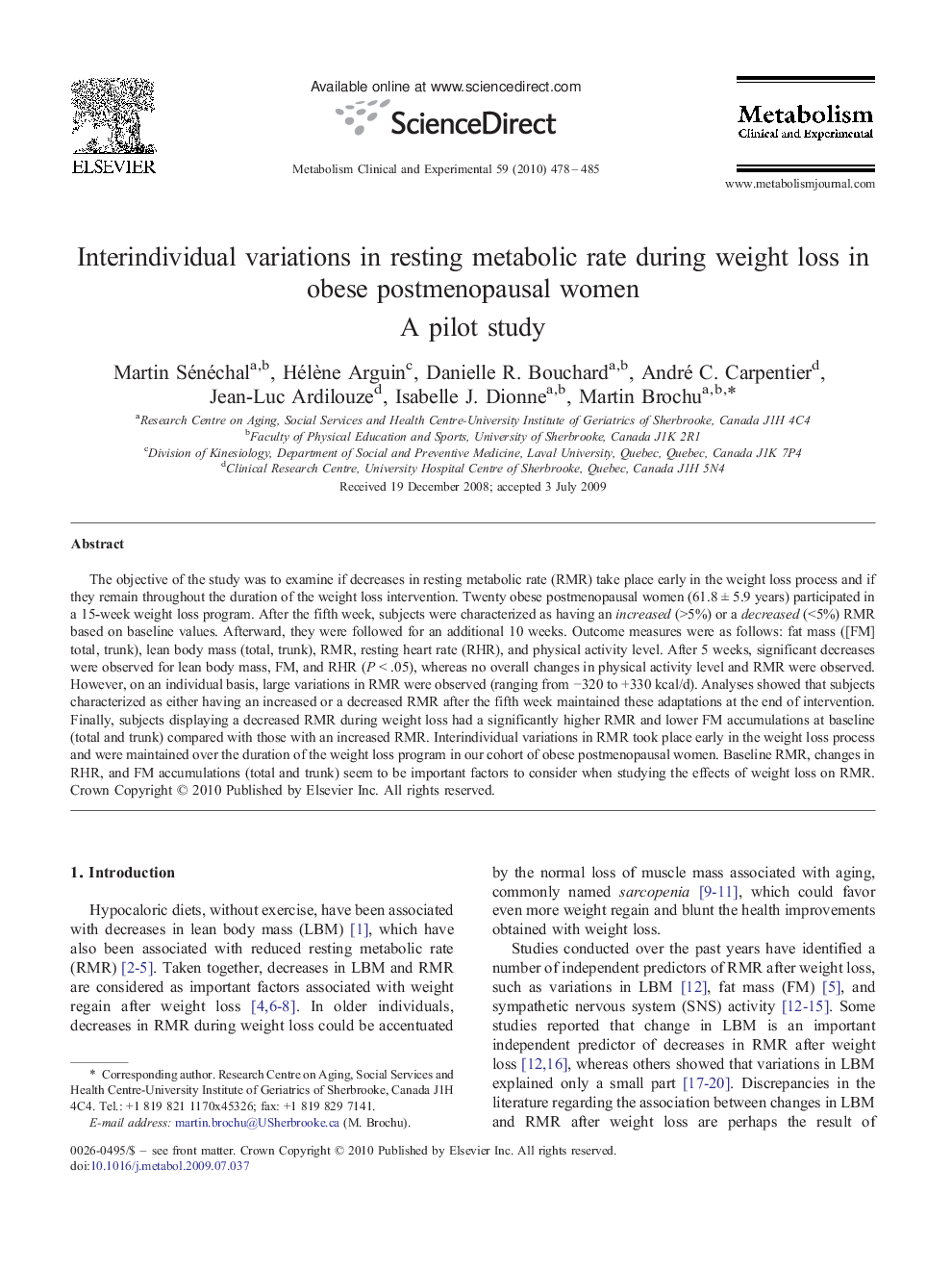| Article ID | Journal | Published Year | Pages | File Type |
|---|---|---|---|---|
| 2806688 | Metabolism | 2010 | 8 Pages |
The objective of the study was to examine if decreases in resting metabolic rate (RMR) take place early in the weight loss process and if they remain throughout the duration of the weight loss intervention. Twenty obese postmenopausal women (61.8 ± 5.9 years) participated in a 15-week weight loss program. After the fifth week, subjects were characterized as having an increased (>5%) or a decreased (<5%) RMR based on baseline values. Afterward, they were followed for an additional 10 weeks. Outcome measures were as follows: fat mass ([FM] total, trunk), lean body mass (total, trunk), RMR, resting heart rate (RHR), and physical activity level. After 5 weeks, significant decreases were observed for lean body mass, FM, and RHR (P < .05), whereas no overall changes in physical activity level and RMR were observed. However, on an individual basis, large variations in RMR were observed (ranging from −320 to +330 kcal/d). Analyses showed that subjects characterized as either having an increased or a decreased RMR after the fifth week maintained these adaptations at the end of intervention. Finally, subjects displaying a decreased RMR during weight loss had a significantly higher RMR and lower FM accumulations at baseline (total and trunk) compared with those with an increased RMR. Interindividual variations in RMR took place early in the weight loss process and were maintained over the duration of the weight loss program in our cohort of obese postmenopausal women. Baseline RMR, changes in RHR, and FM accumulations (total and trunk) seem to be important factors to consider when studying the effects of weight loss on RMR.
